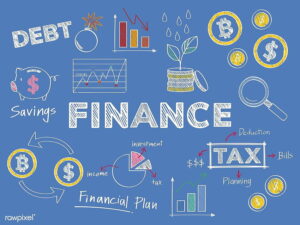To buy Hyundai inventory in India, you want to follow...
Read MoreMost Recent Blogs
Kyle Verreynne Net Worth
An industrious South African cricketer, Kyle Verreynne has done well...
Read MoreDeepak Mohoni Net Worth in 2024
Deepak Mohoni is a famous call within the Indian stock...
Read MoreSherrone Moore net worth in 2024
Sherrone was born on 31st December in the year 1974,...
Read MoreYour Financial Education
Financial Education वित्तीय शिक्षा आपके धन का कुशलतापूर्वक प्रबंधन करने...
Read MoreTolins Tyres IPO Share Price
Tolins Tyres IPO share Price Tolins Tyres is gearing up...
Read MoreKross Limited Share Price
Kross Limited share price Kross Limited is a distinguished player...
Read MoreBrett Rypien Net Worth
Brett Rypien net worth American football quarter back Brett Rypien...
Read Morewhat is Financial Planning?
Financial planning is a comprehensive approach to handling your price...
Read MorePopular Blogs
Bill Pascrell Net Worth in 2024
Bill Pascrell net worth: Bill Pascrell’s net worth is a...
Read MoreWhat is Nutrition? : Nutrition and Mental Health
Nutrition is the cornerstone of a healthy lifestyle. It encompasses...
Read MoreDecoding Variables: Understanding Their Significance and Functionality
Variables lie at the core of programming and data analysis....
Read MoreGuide to Creating Stunning Web Pages by HTML
HTML stands as the cornerstone, the bedrock upon which the...
Read MoreIn modern-day world, the sector of finance extends a long way beyond just managing personal financial savings and investments. It plays a essential position in almost each activity imaginable Finance in Job. From reading market traits to securing funding for a brand new undertaking, a robust understanding of economic ideas can be a treasured asset, irrespective of your specific profession route. This advent sets the degree to discover how finance intersects with various professions and the blessings it offers inside the place of business.
Table of Contents
ToggleWhy Finance Matters in Your Career
Finance know-how transcends careers especially in finance. Here’s why it’s critical:
- Understanding Money: No depend your area, you’ll cope with money in a few manner, from budgeting for a mission to negotiating a salary. Financial literacy empowers you to make knowledgeable decisions.
- Business Acumen: Finance is the spine of companies. Grasping financial ideas helps you apprehend how organizations operate, make earnings, and allocate assets. This is valuable in any profession.
- Decision Making: Financial evaluation involves weighing dangers and rewards. This ability translates to any field wherein you want to make knowledgeable choices, thinking about costs, advantages, and capacity results.
- Communication and Presentation: Finance specialists need to gift complicated data without a doubt and concisely. This translates to effective verbal exchange in any position, in which you would possibly want to explain thoughts or proposals Finance in Job.
- Career Advancement: Financial skills are attractive to employers. Even in non-finance roles, understanding budgets, ROI (Return on Investment), and economic statements could make you a sturdy candidate for leadership positions.
Financial expertise isn’t pretty much numbers; it’s about knowledge how the arena works. It empowers you to make knowledgeable choices and navigate your career with confidence.
How Finance in Job Skills Can Enhance Your Marketability
Finance skills can significantly boost your marketability across various industries for several reasons:
- Universality of Finance: Financial concepts apply far beyond just finance jobs. Every organization deals with money in some way, from budgeting for projects to analyzing costs and profits. Understanding these concepts makes you a valuable asset in any role.
- Data Analysis and Problem-Solving: Finance professionals are experts at analyzing complex financial data to identify trends, make forecasts, and solve problems. These analytical and problem-solving skills are highly sought-after in today’s data-driven world, regardless of the field.
- Business Acumen: Finance provides a unique lens into the inner workings of a business. By understanding financial statements, budgeting, and cost analysis, you gain a broader understanding of how businesses operate and make decisions. This “business acumen” is attractive to employers in any industry.
- Strong Communication and Presentation Skills: Effectively communicating complex financial information is a core skill for finance professionals. This translates to clear and concise communication in any role, where you might need to present ideas, proposals, or data to colleagues, clients, or stakeholders Finance in Job.
- Decision-Making with ROI: Finance involves evaluating potential risks and rewards. This skill is crucial in any role where decisions have financial implications. Employers value candidates who can analyze options, weigh costs and benefits, and make sound choices that ensure a positive return on investment (ROI).
- Leadership Potential: Financial skills are a strong indicator of leadership potential. Understanding budgets, financial health, and resource allocation demonstrates the ability to think strategically and make sound decisions – all qualities desired in leaders across various fields.
By showcasing your finance skills on your resume and highlighting them during interviews, you can stand out from the competition and demonstrate your value to potential employers, even in non-finance roles
Finance in Job Planning for Career Growth
Financial planning isn’t just about saving for retirement; it can be a powerful tool to propel your career forward. Here’s a way to align your budget together with your professional aspirations:
1. Invest in Yourself:
- Education and Training: Identify skills or certifications treasured in your desired career path. Budget for publications, workshops, or maybe a applicable degree to beautify your qualifications and marketability. Consider scholarships, presents, or enterprise-subsidized packages to ease the financial burden.
- Networking: Industry occasions, conferences, and professional affiliation memberships can connect you with potential mentors, collaborators, and employers. Factor in expenses like registration expenses and travel expenses when planning your budget.
2. Build Your Emergency Fund:
- An surprising monetary hurdle shouldn’t derail your profession aspirations. Aim for three-6 months of residing expenses in an emergency fund. This protection net allows you to pursue new opportunities, like attending a profession-converting education application, with out economic fear.
3. Manage Debt Strategically:
- High-interest debt can stifle your career progress. Prioritize paying off credit score card debt and different high-interest loans. Consider debt consolidation techniques to simplify reimbursement and potentially lower interest costs Finance in Job.
4. Plan for Career Transitions:
- Changing careers often entails a duration of decrease profits in the course of training or a activity search. Factor in potential salary modifications and adjust your finances for that reason.
5. Leverage Financial Tools:
- Tax-advantaged Accounts: Explore options like IRAs (Individual Retirement Accounts) or business enterprise-backed retirement plans. While these are in general for retirement financial savings, some permit restrained withdrawals for training expenses.
Essential Financial Skills for the Workplace

In trendy place of job, monetary competencies are precious assets no matter your unique career path. Here are a few vital financial competencies to broaden for fulfillment:
1. Financial Literacy:
- Understand middle economic concepts like budgeting, saving, and making an investment.
- Be acquainted with terms like hobby fees, compound interest, and return on funding (ROI).
- Grasp a way to study fundamental monetary statements like profits statements and balance sheets Finance in Job.
2. Budgeting and Cash Flow Management:
- Create and preserve a practical price range that tracks your income and expenses.
- Effectively manage your coins glide to avoid overspending and debt.
- Develop strategies for saving towards both quick-time period and long-term dreams.
3. Basic Financial Analysis:
- Be capable of interpret economic facts to apprehend a organisation’s economic fitness, profitability, and ability risks.
- Perform value-gain evaluation to assess the financial implications of decisions.
4. Financial Communication:
- Clearly present financial information, each verbally and in writing, to colleagues, clients, or stakeholders.
- Tailor your communique fashion to the audience’s monetary literacy level.
5. Personal Finance Management:
- Develop a debt management plan to repay excessive-interest debt and keep away from destiny financial strain Finance in Job.
- Plan for sudden activities by using building an emergency fund.
- Understand basic tax principles and a way to report your taxes appropriately.
Exploring Careers Finance in Job
The world of finance gives a diverse and thrilling array of career paths! Whether you’re attracted to the fast-paced world of investment banking or the analytical aspect of financial planning, there’s an ideal in shape in your skills and hobbies. Here’s a glimpse into a few famous finance careers:
1. Investment Banking:
- Job Description: Investment bankers help companies and governments raise capital through various means like stock issuance (IPOs) or mergers and acquisitions (MandA). They recommend customers on monetary approach and navigate complicated monetary transactions.
- Skills Needed: Strong analytical and problem-solving skills, great conversation and presentation abilties, teamwork, and monetary modeling know-how.
2. Financial Analyst:
- Job Description: Financial analysts studies, examine, and interpret monetary data to assess the financial health of companies or investments. They create reviews and hints used for funding decisions, budgeting, and forecasting.
- Skills Needed: Excellent analytical abilities, financial modeling skillability, sturdy attention to detail, and clear conversation talents Finance in Job.
3. Portfolio Manager:
- Job Description: Portfolio managers oversee funding portfolios for individuals or establishments, aiming to reap particular monetary dreams even as coping with risk. They make investment selections primarily based on marketplace evaluation and patron wishes.
- Skills Needed: In-intensity expertise of economic markets and investment strategies, sturdy analytical and decision-making talents, and chance control know-how.
4. Financial Planner:
- Job Description: Financial planners help individuals and families increase personalized monetary plans to gain their monetary goals, which includes saving for retirement, schooling, or shopping for a home. They provide advice on budgeting, debt control, and investment strategies.
- Skills Needed: Excellent communique and interpersonal capabilities, sturdy monetary literacy, and the capability to apprehend person patron wishes and danger tolerance Finance in Job.
5. Risk Analyst:
- Job Description: Risk analysts perceive, examine, and mitigate economic dangers faced with the aid of companies or economic institutions. They develop strategies to reduce capacity losses and make sure financial balance.
- Skills Needed: Strong analytical competencies, economic modeling knowledge, understanding of hazard management ideas, and notable communique skills.
Building a Finance Career
Launching a successful career in finance calls for a multi-pronged method. Here’s a roadmap to manual you:
1. Education and Qualifications:
- Formal Education: A bachelor’s degree in finance, accounting, economics, or a enterprise-associated area is a sturdy basis. Consider specializations like investment management or economic making plans.
- Advanced Degrees: An MBA or a Master’s in Finance can enhance your information and marketability, particularly for senior positions Finance in Job.
- Professional Certifications: Earning designations like CFA (Chartered Financial Analyst), CIMA (Chartered Institute of Management Accountants), or CFP (Certified Financial Planner) display understanding and dedication to the sphere.
2. Skill Development:
- Technical Skills: Master financial modeling, statistics evaluation equipment like Excel and Bloomberg, and financial software relevant to your preferred discipline.
- Soft Skills: Develop robust verbal exchange, teamwork, trouble-fixing, and critical questioning capabilities. Negotiation and interpersonal abilities are also treasured belongings.
- Stay Updated: The monetary panorama is dynamic. Stay modern-day with enterprise developments, guidelines, and new technology through ongoing mastering.
3. Experience and Networking:
- Internships: Seek internships for the duration of your studies to gain practical revel in and build your network.
- Entry-Level Jobs: Start your career in an entry-level function like financial analyst assistant or investment banking analyst Finance in Job.
- Networking: Attend industry events, conferences, and connect with experts on LinkedIn. Build relationships with mentors who can guide your profession route.
4. Charting Your Course:
- Self-Assessment: Identify your pastimes and strengths within finance. Are you interested in the quick-paced international of trading or the analytical facet of economic making plans?
- Research Different Paths: Explore various profession alternatives inside finance (previous phase) and tailor your skillset and revel in therefore.
- Long-Term Goals: Set career goals and expand a roadmap to gain them. Consider the kind of paintings surroundings and life-style you desire.
Applying Finance in Job Skills
Financial skills are treasured property regardless of your particular position. Here’s how you can leverage them to polish to your job, even outdoor of finance:
- Improved Decision-Making: Financial capabilities train you to research information, investigate risks and rewards, and make sound choices. Apply this method to your initiatives, figuring out cost-powerful answers and providing records-driven pointers.
- Budgeting and Resource Management: Budgeting knowledge translates properly beyond finance. You can use those abilities to control assignment budgets, allocating resources successfully to maximise effect within your department Finance in Job.
- Understanding Financial Statements: Being acquainted with monetary statements like income statements and stability sheets enables you grasp the larger photograph of your business enterprise’s economic fitness. This understanding lets in you to make informed decisions that align with the organization’s economic desires.
- Effective Communication of Complex Data: Financial specialists excel at offering complex economic facts simply and concisely. This interprets nicely to any position where you want to speak ideas, information, or proposals to colleagues, customers, or stakeholders.
- Financial Impact Analysis: Consider the economic implications of your selections. Can your mission ideas store the employer money or generate new revenue streams? Highlighting the capacity financial impact strengthens your proposals and demonstrates your understanding of the bigger photo Finance in Job.
- Negotiation Skills: Financial professionals hone their negotiation talents thru deal-making. You can leverage those abilties in various conditions, from negotiating contracts with providers to securing venture sources or even negotiating your salary.
Financial Planning for Career Transitions
A career exchange may be thrilling, but it also comes with economic considerations. Here’s how to create a economic plan to navigate profession transitions easily:
1. Assess Your Current Financial Situation:
- Income and Expenses: Create an in depth budget outlining your earnings from all sources and everyday charges. This allows apprehend your modern economic status and how much you could find the money for to shop for the transition.
- Debts and Obligations: List all of your debts (credit score cards, loans, and many others.) with hobby charges and minimal payments. Factor those into your finances and don’t forget strategies to pay them down earlier than or at some point of your transition Finance in Job.
- Savings and Emergency Fund: Evaluate your cutting-edge savings and emergency fund. Aim to have three-6 months of dwelling fees stored to cowl sudden costs at some point of the transition duration whilst your income is probably decrease.
2. Project Future Income:
- Research New Field: Research the standard salary range to your favored career path. Consider ability variations primarily based on enjoy and vicinity.
- Factor in Potential Income Gaps: There is probably a length of lower income during education or a process seek. Be realistic and estimate the ability income hole and its duration.
3. Adjust Your Budget:
- Review Expenses: Transitioning careers might necessitate adjustments in your life-style. Analyze your prices and identify areas to scale back to create space for potential income reduction.
- Prioritize Needs: Focus on essential charges like housing, food, and utilities. Explore methods to lessen discretionary spending on enjoyment, dining out, and so on.
- Increase Savings: If viable, try and increase your savings earlier than the transition to create a buffer for ability earnings gaps.
4. Explore Financial Tools:
- Emergency Fund: Prioritize constructing or bulking up your emergency fund to a cushty stage to cowl unexpected charges all through the transition.
- Tax-Advantaged Accounts: Consider the usage of IRAs (Individual Retirement Accounts) or organisation-subsidized retirement plans. While more often than not for retirement, some permit constrained withdrawals for training or schooling costs relevant on your profession trade Finance in Job.
- Government Programs: Research government applications or presents that would provide monetary assistance for career training or training related to your preferred new discipline.
5. Seek Professional Guidance:
- Financial Advisor: Consider consulting a economic consultant to create a personalized monetary plan to your career transition. They can provide tailored recommendation based in your unique situations and economic desires.
Conclusion
Finance talents are lots greater than just numbers; they empower you to navigate your career with confidence. Whether you are aiming for a selected finance career course or looking for to bolster your value in any function, financial literacy is a effective asset.
Here’s a short recap of why finance is vital in your activity:
- Stronger Decision-Making: Financial abilties educate you to research records, investigate risks and rewards, and make sound choices – valuable in any area.
- Effective Communication: Presenting complicated statistics honestly and concisely is important in finance, and translates brilliantly to any role wherein you want to communicate thoughts or proposals Finance in Job.
- Financial Impact Analysis: Understanding the monetary implications of your selections provides weight for your ideas and demonstrates a broader attitude.
- Budgeting and Resource Management: Budgeting information is valuable beyond finance, from managing mission budgets to allocating sources efficaciously.
- Career Advancement: Financial abilties are appealing to employers. Even in non-finance roles, expertise monetary statements and ROI could make you a strong candidate for leadership positions.
By developing your economic talents and strategically making use of them in your activity, you end up a extra precious asset, contribute for your team’s achievement, and role your self for advancement Finance in Job. Remember, monetary planning is likewise key to navigating profession transitions smoothly. So, take charge of your price range, and propel your self closer to a satisfying and successful career adventure!
FAQ'S
Q. What is the job in finance?
Trading, Portfolio Management, Sales, Customer Service. Risk Management, Information Technology (IT), Corporate Finance, Portfolio Management, Research. (especially if these departments do not interact directly with clients) Accounting, Human Resources, Payroll, Operations.
Q. What is the job function of finance?
Finance Officer is responsible for all financial aspects of a business or organisation. They manage the budget, prepare financial reports, and ensure that all financial transactions are conducted legally and ethically.
Q. Is finance a good career?
Finance can be a satisfying and rewarding career path, especially if you have excellent mathematical and analytical skills. It is also helpful if you have good communication skills, willingness to learn and work hard on the job to provide your own insights and knowledge.
Copyright © All Rights Reserved. GMS













